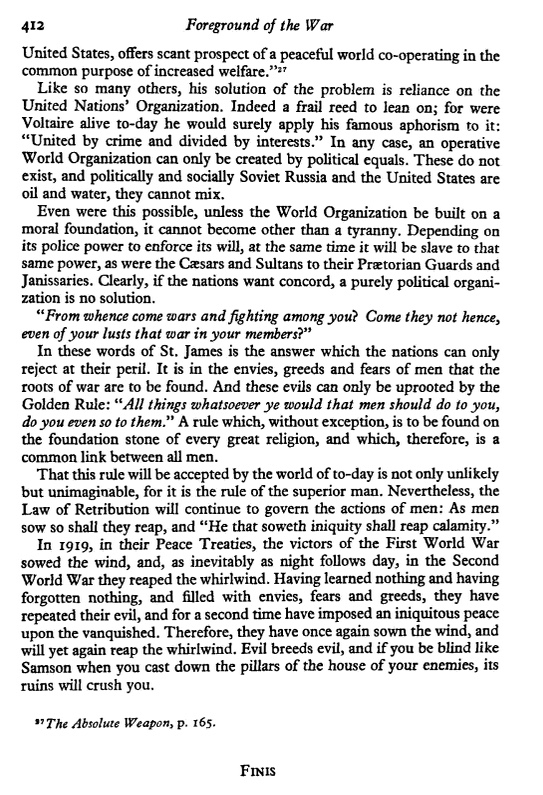derrick06
Active Member
Here I have a quote by Major General J.F. Charles Fuller saying,
" It was not the political goals of Hitler that brought us to war. It was his success in building a new financial system. The roots of this war lie in greed, jealousy, and fear."
I came across this quote when I was debunking a claim that Hitler never died in his bunker in 1945 which is of course false, however I noticed the website I had come across called (justice4germans.com) that had a bias essentially that the Allies were oh so evil, Nazi Germany was basicly innocent and the World Bank instigated everything... Typical conspiracy ultra nationalism Weeeee.
Basically the author used this quote as a concluding argument for his claim and I was wondering what the actual context is for this quote. Is Charles Fuller claiming Hitler had nothing to do with intigating WW2? I thought it was intriguing so any information could help. I'm assuming this quote specifically was by THE Major-General John Frederick Charles Fuller who was a British Army Officer. (1 September 1878 – 10 February 1966) did I mention he invented the spotlight? =P
" It was not the political goals of Hitler that brought us to war. It was his success in building a new financial system. The roots of this war lie in greed, jealousy, and fear."
I came across this quote when I was debunking a claim that Hitler never died in his bunker in 1945 which is of course false, however I noticed the website I had come across called (justice4germans.com) that had a bias essentially that the Allies were oh so evil, Nazi Germany was basicly innocent and the World Bank instigated everything... Typical conspiracy ultra nationalism Weeeee.
Basically the author used this quote as a concluding argument for his claim and I was wondering what the actual context is for this quote. Is Charles Fuller claiming Hitler had nothing to do with intigating WW2? I thought it was intriguing so any information could help. I'm assuming this quote specifically was by THE Major-General John Frederick Charles Fuller who was a British Army Officer. (1 September 1878 – 10 February 1966) did I mention he invented the spotlight? =P

